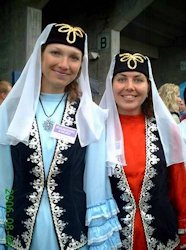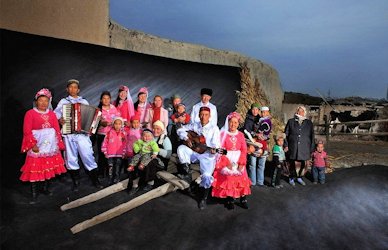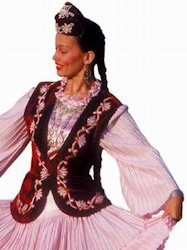|
45. Chinese Nationalities (Tatar Minority) -- Minorities by Alphabetic Sequence |
|||

|

|

|
|
| Tatar Ladies | Tatar Group | Tatar Lady | |
|
The Tatar ethnic group in China has a population of about 10,000, most of whom live in the towns of Yining, Tacheng, and Urumqi in the Xinjiang Uygur Autonomous Region. The Tatars historically named the "Dadan", are descended from a branch of a Mongolian tribe, who used to inhabit the region near the Volga River.
From the beginning of the 20th century, the Tatars gradually
settled in Xinjiang. Most of them were occupied as merchants. The Tatar
nationality has its own language, which belongs to Turkic branch of the Altaic
language family. However, as a result of frequent contact with the Uygur and
Kazak people, the Tatars also use Kazak or Uygur language. The Tatars' written
language is based on Arabic letters, but now they often also use Kazak and
Uygur characters.
|
|||
| Return to Alphabetic List On to No. 46 Minority Tibetan ⇨ | |||